How To Make Orange Peel Powder
Did you know there are more nutrients present in an orange peel than the fruit itself? Instead of throwing away the leftover orange peels, we will walk you through how to make orange peel powder.
In this post, we will be discussing the nutrition of the orange versus the orange peel, sourcing oranges to make orange peel powder, the benefits of orange peel powder (even beyond the kitchen), and finally how to make orange peel powder.

When Life Gives You Oranges…
Here in the Midwest, oranges aren’t part of our local food supply. Because we like to focus on growing our food or sourcing it locally, indulging in citrus is a rarity in our world.
However, we recently had the opportunity to purchase some oranges from a friend in California with several orange trees. Without a doubt, these were the best oranges we have ever had.
Before our oranges arrived in the mail, I knew I wanted to make the most of these precious treats. This meant using every part of the orange that we could from the fruit to the peel. From this, I was inspired to learn how to make orange peel powder, and we were so pleased with the results.
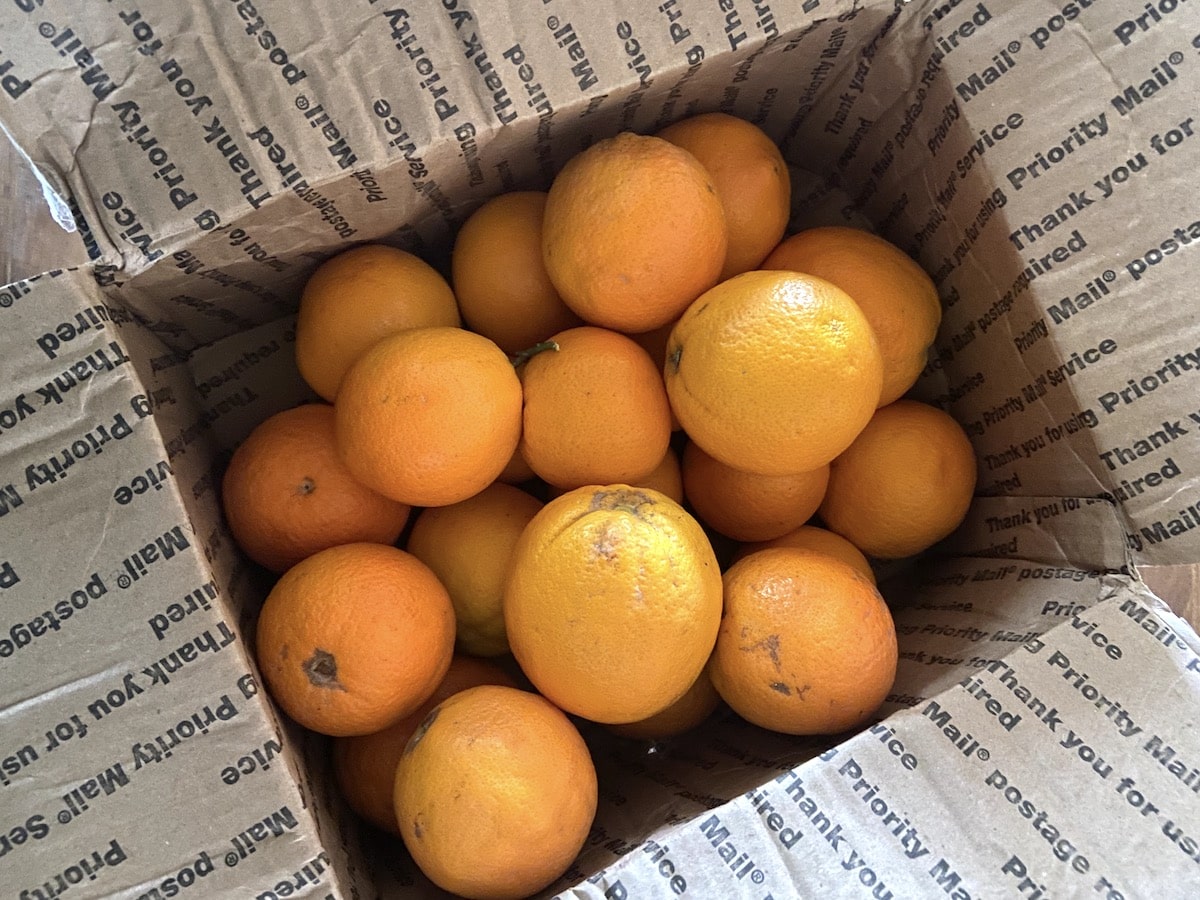
Nutrition of the Orange vs Orange Peel
While oranges are touted for being rich in vitamin C, the peel contains roughly three times the amount of vitamin C as the fruit. Other vitamins and minerals present in the citrus peels in significant amounts include provitamin A, folate, riboflavin, thiamine, vitamin B6, and calcium (source, USDA FoodData Central).
The peel of the orange is also a rich source of polyphenols. These polyphenols as well as the essential oils present in orange peels are known for their anti-cancer and anti-inflammatory properties.
Sourcing of Oranges to Make Orange Peel Powder
The sourcing of oranges, especially when you plan to preserve the peel, is important. When insecticides and pesticides are applied, they are most heavily concentrated on the peel.
To give yourself the best odds of avoiding these harmful chemicals in your orange peel powder, I would strongly encourage you to find organically grown oranges.
That being said, whether conventionally or organically grown, you will want to wash the oranges thoroughly before going through the process of turning them into a fine powder.
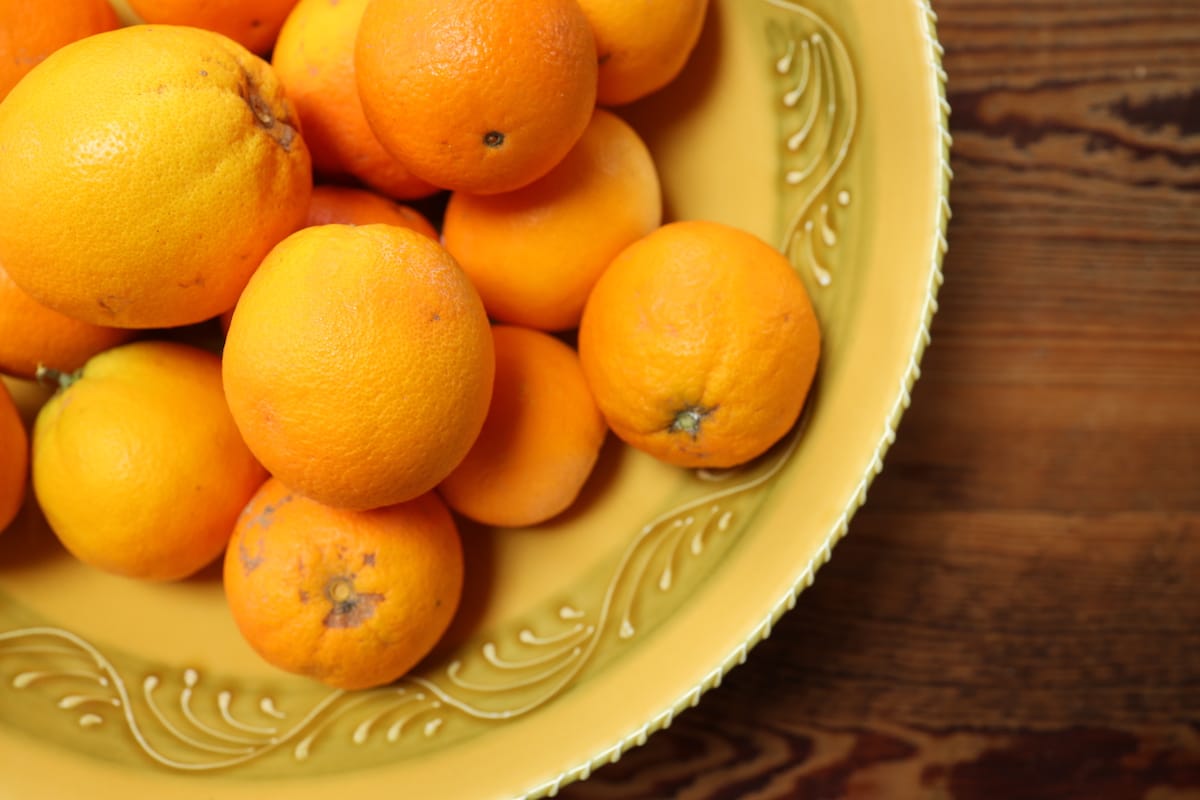
How to Use Orange Peel Powder
There are so many uses for orange peel powder—not only culinarily but also in cleaning products and skin care.
Ideas for adding orange powder to food:
- Smoothies
- Salad Dressings
- Orange Chicken
- Chocolate Orange Sourdough Scones
- Baked goods (we love it in this baked oatmeal)
- Teas
- Sauces
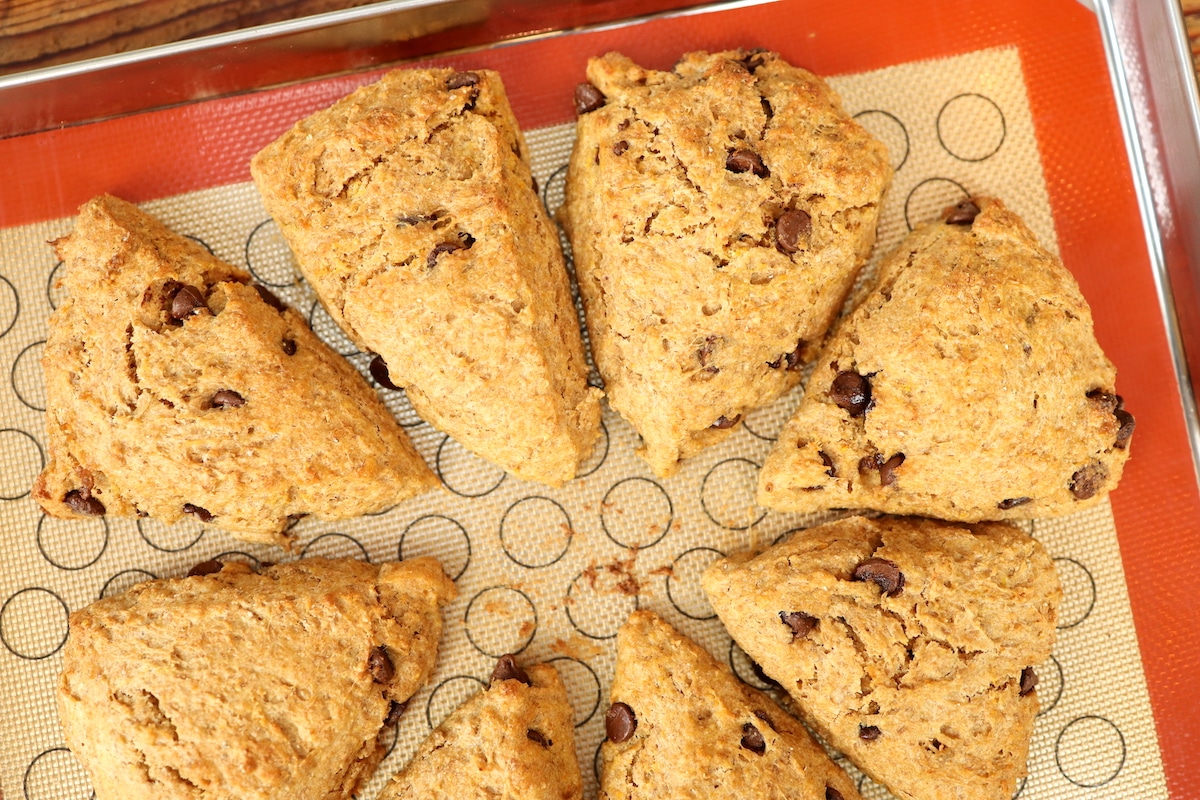
Benefits of Using Orange Powder for Skincare
Because of the high amounts of vitamins A, C, E, and other minerals present in the peel of an orange with highly antimicrobial and antibacterial properties, they can be very nourishing when applied to the skin.
Specifically, it has been known to be beneficial for treating acne and oily skin as well as aiding skin coloring and pigmentation. It is a wonderful ingredient to add to DIY body scrubs and face masks.
Orange Peels in Cleaning
Orange peels produce an oil called D-limonene. This oil helps clean products because it helps to make surfaces shiny and clean.
Orange peels also have antibacterial properties helpful for getting rid of germs that may be lurking around your home. Rubbing straight orange peels on stainless steel pans or appliances has been shown to give them a nice polish. The peels can also be added to vinegar to make a great natural cleaner.
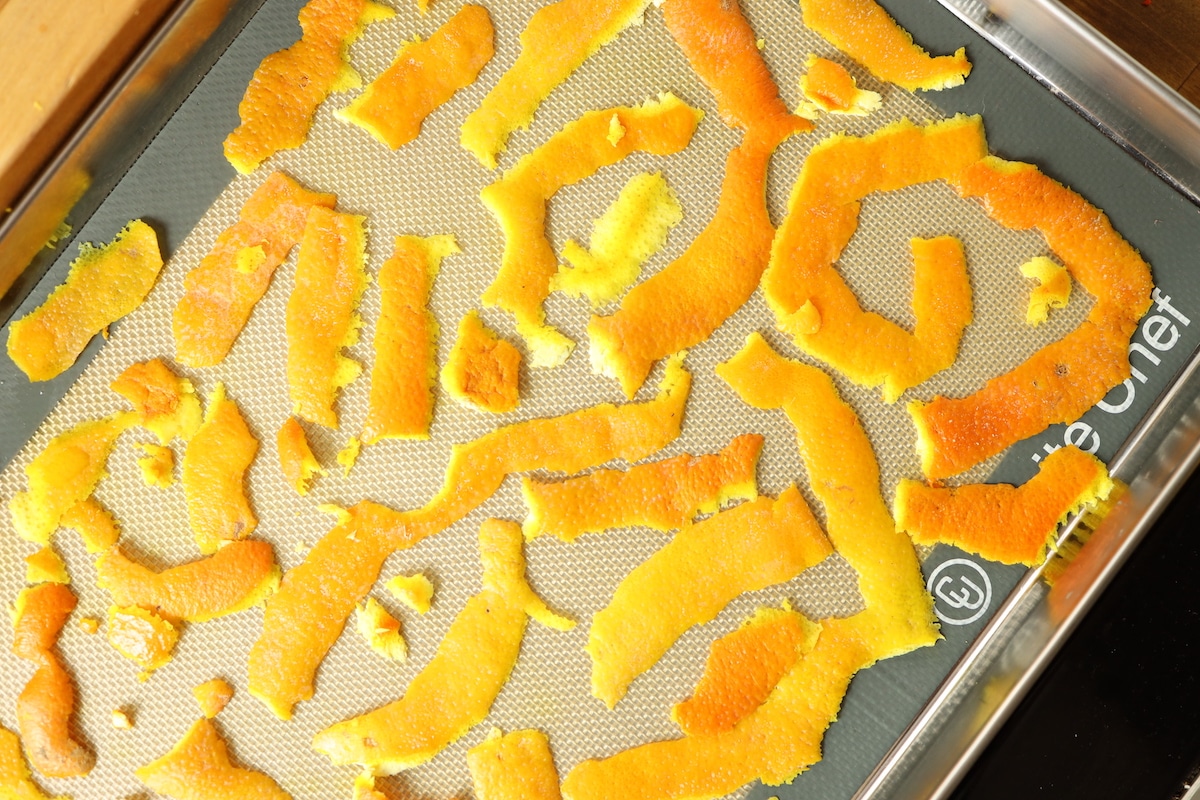
Orange peels also leave a lovely scent. So, if you have a stink in your fridge or garbage disposal, mixing some orange peel powder with baking soda and leaving the mixture in those stinky spaces will freshen them up in no time.
How to Make Orange Peel Powder
The process of making orange peel powder is so simple. In short, you peel, dry out, blend into powder, and store. It is that easy!
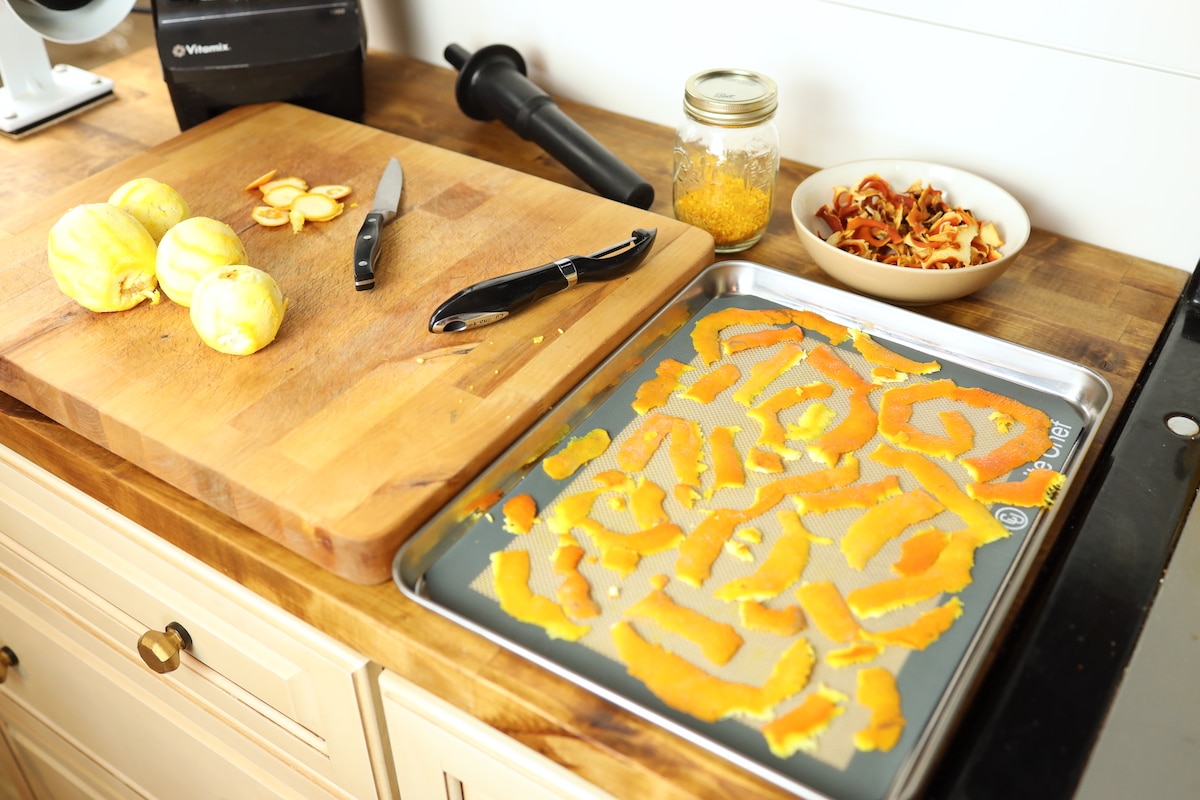
Step 1 – Peel
Before we are going to be eating oranges, I quickly peel the orange skin from the orange and lay the peels flat on a baking sheet. I like to lay them on a silicone baking mat or parchment paper.
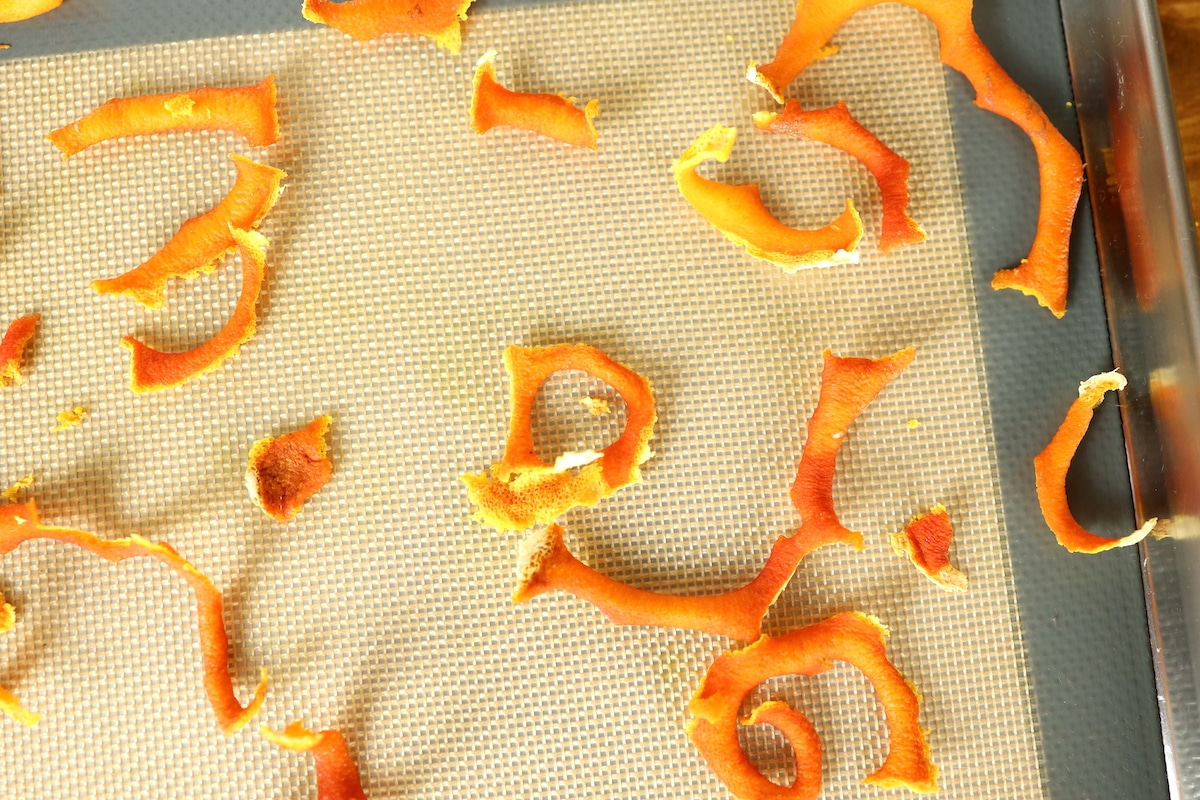
Step 2 – Dry
Then place the baking sheet in the oven at the lowest temperature it can go or place on the rack of a dehydrator. Our oven goes down to about 130°F (55°C) and it takes roughly 3-4 hours to dry the peels. If your oven only goes down to 170-200°F (77-94°C) it will not take as long. I’d begin checking it after 30-60 minutes.
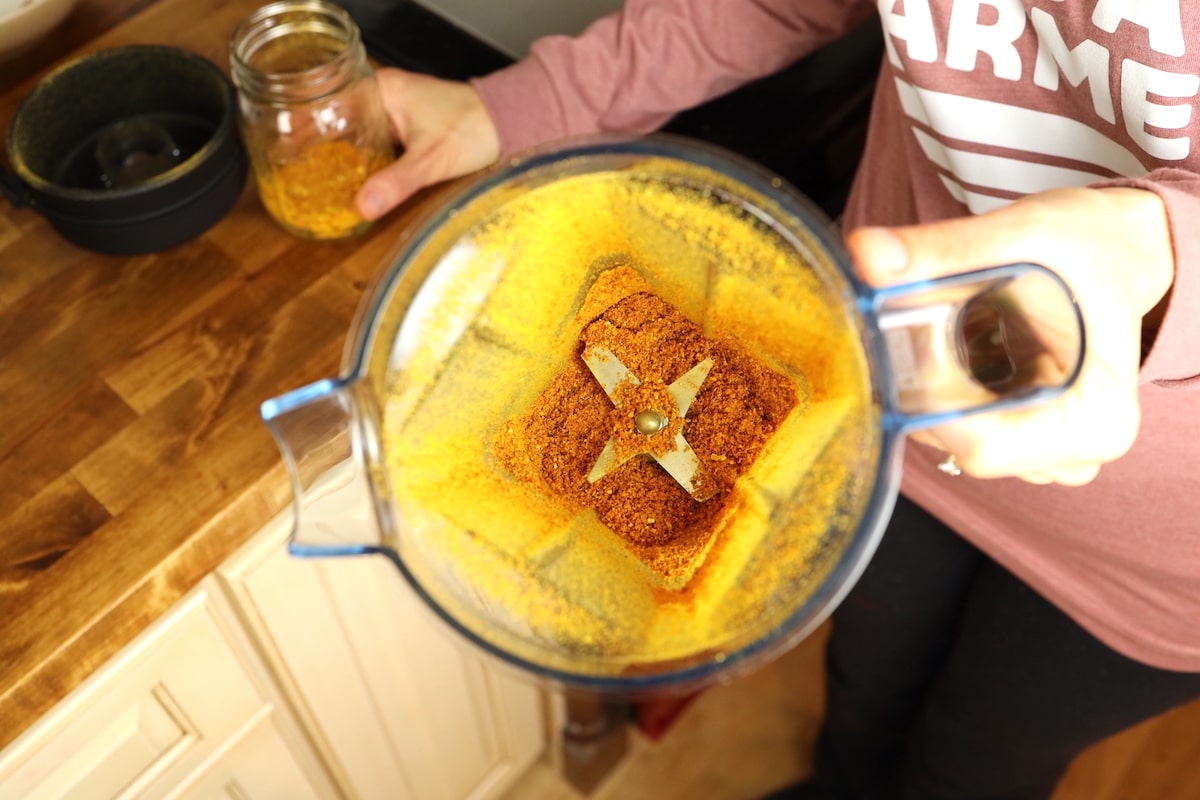
Step 3 – Blend Into Powder
Once the peels are hard and curled, remove the dehydrated orange peels from the oven and pulse in a food processor or the dry container of a blender until a powder is created.
Frequently Asked Questions:
Do I need a peeler or can I just peel with my hands?
I like to just get the outer orange peel and compost the white fibrous part underneath. To get this part, I use a peeler and peel it like I would a potato.
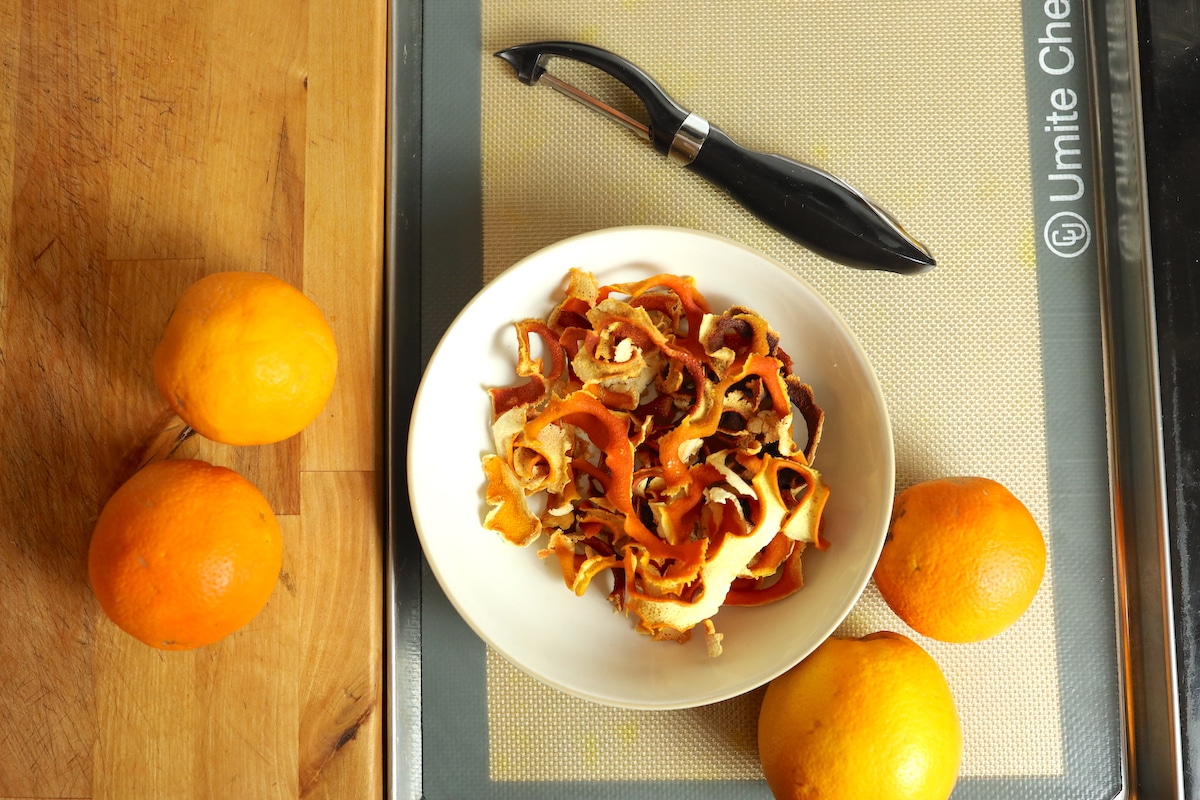
How do I store my orange peel powder?
After blending it, I like to store the powder in a mason jar on my counter in a dark, cool place. Any airtight container will work great.
After a recent experience with a jar of our dried powders going moldy, we have since switched to storing our dried food powders in Wallaby mylar storage bags. These bags are airtight, lightproof, and come with an oxygen absorber, allowing foods to stay fresh for years instead of months.
Use code FROMSCRATCH5 for $5 off your Wallaby order!

Can this replace orange zest?
Yes! This is a perfect substitute for orange zest in any recipe. I love this because I rarely have any oranges on hand when I’m making a recipe that calls for zest. But now I can just use this orange peel powder instead.
Can I do this same method with other citrus fruits?
Yes, this would work well with lemons, limes, or even grapefruits. It’s really interesting once you begin exploring the nutritional information in the fruit vs. peel to find that so much valuable nutrition is concentrated in the peel. For example, the peels of a banana contain significantly more potassium than the fruit and are regularly used to make banana tea.
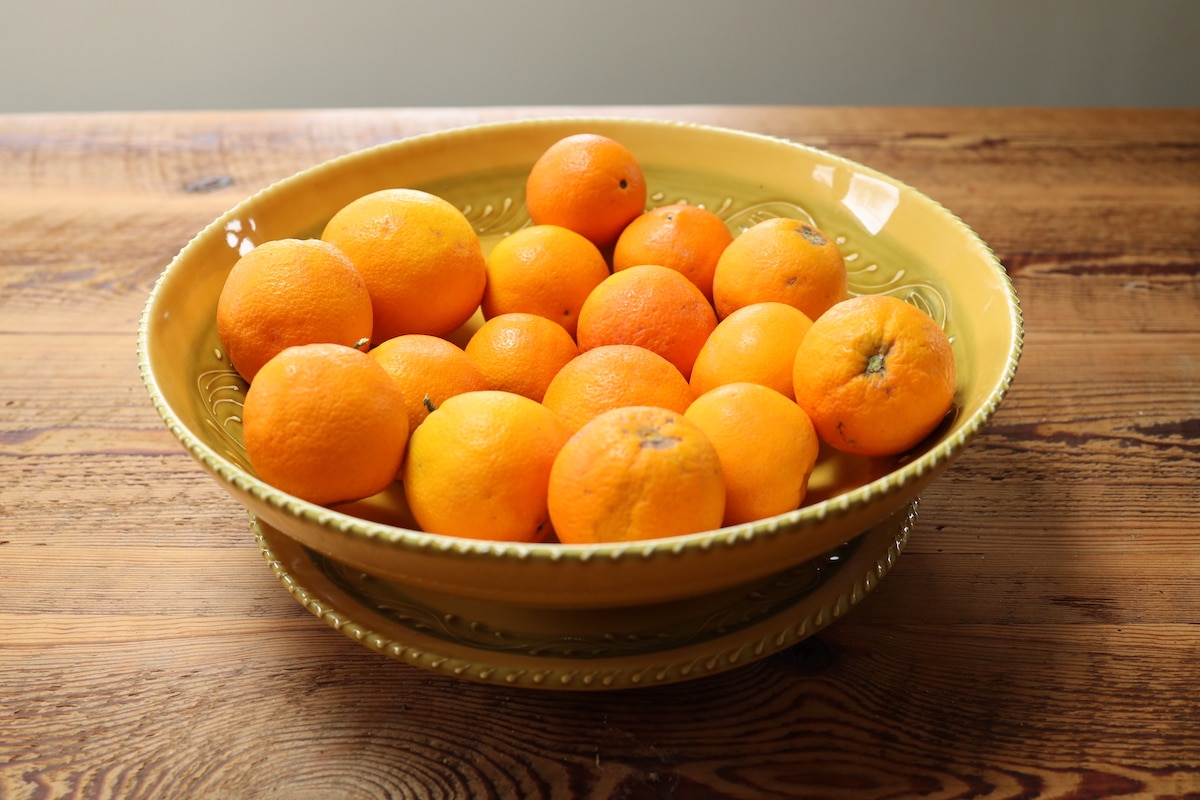
Do I have to dry the orange peels in the oven?
No. While an oven set at the lowest temperature is the quickest method for drying out orange peels, a dehydrator or even drying them in the sun are great alternatives that just take a few hours longer.
Orange Peel Powder Recipe
Ingredients:
– Oranges (I like to do 3-4 at a time)
Directions:
- Peel oranges.
- Lay peel flat on a baking sheet in a single layer.
- Cook in a dehydrator or at the lowest temperature in your oven until the oranges are hard and beginning to curl
- Blend in a food processor or the dry blender of a Vitamix until a crumbled powder texture is formed.
Looking for a great way to use your orange peel powder? Try adding it to these recipes:
Some of the above links are affiliate links. This means we earn a small commission on qualifying purchases at no cost to you. We are so appreciative of your support!
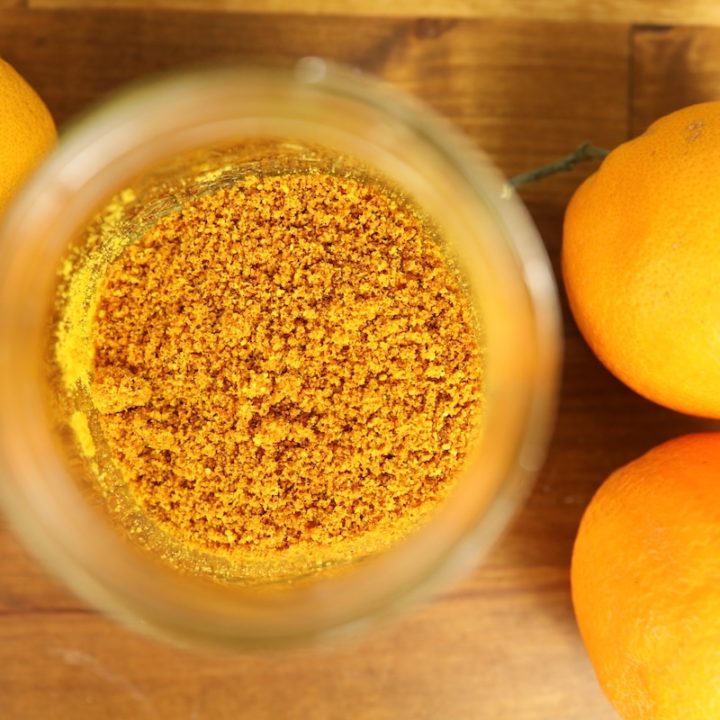
Orange Peel Powder
Did you know there are more nutrients present in an orange peel than the fruit itself? Instead of throwing away that peel, we will walk you through how to make orange peel powder instead.
Ingredients
- Oranges (I like to do 3-4 at a time)
Instructions
- Peel oranges.
- Lay peel flat on baking sheet in a single layer.
- Cook in a dehydrator or at the lowest temperature your oven will go until the oranges are hard and beginning to curl.
- Blend in a food processor or the dry blender of a Vitamix until a crumbled powder texture is formed.
Check out more of our posts on how to preserve food at home:
How to Make Kale Powder With or Without a Dehydrator
Red Cabbage Sauerkraut – How to Make Your Own
How to Make Red Pepper Flakes
Sugar Free Tomato Sauce (Easy, no peel recipe!)
Pin it for later!
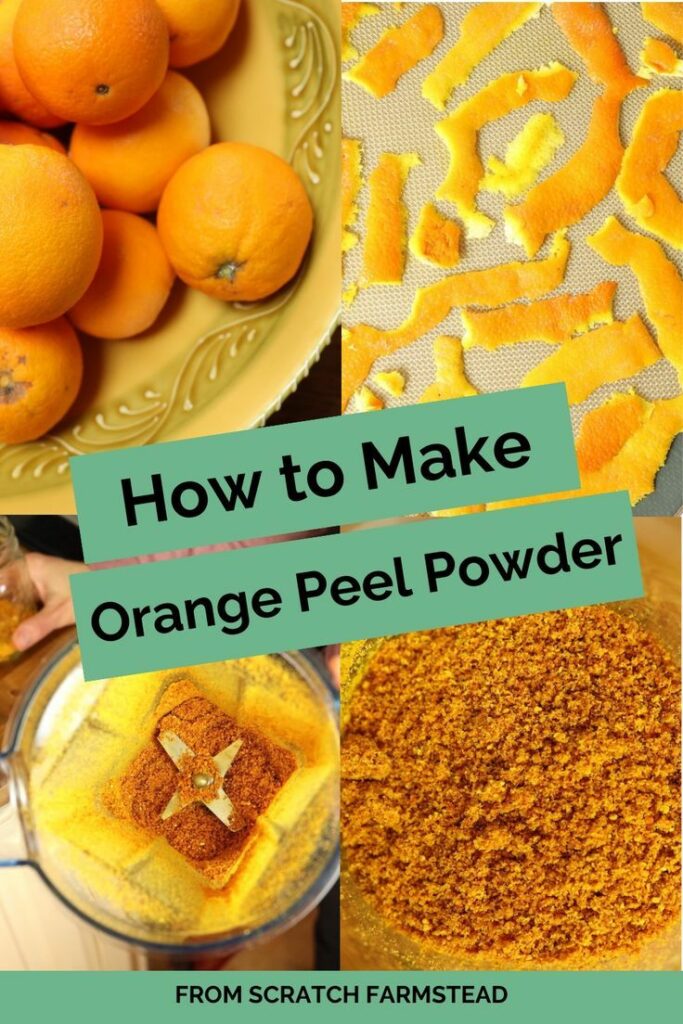

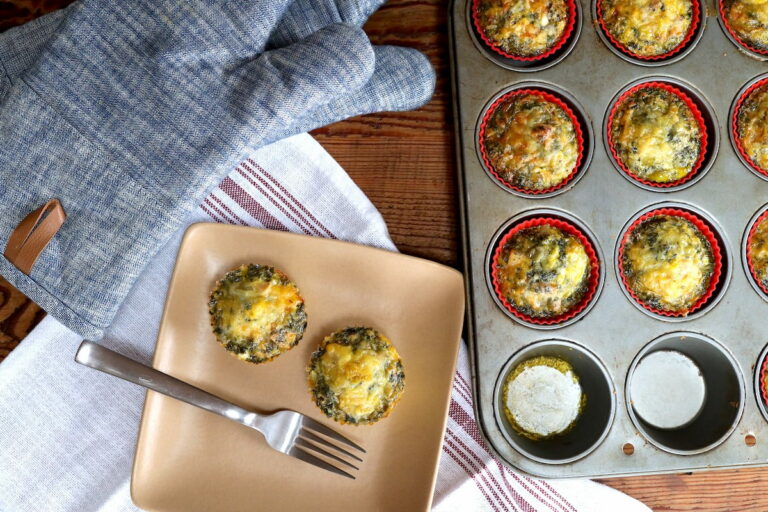
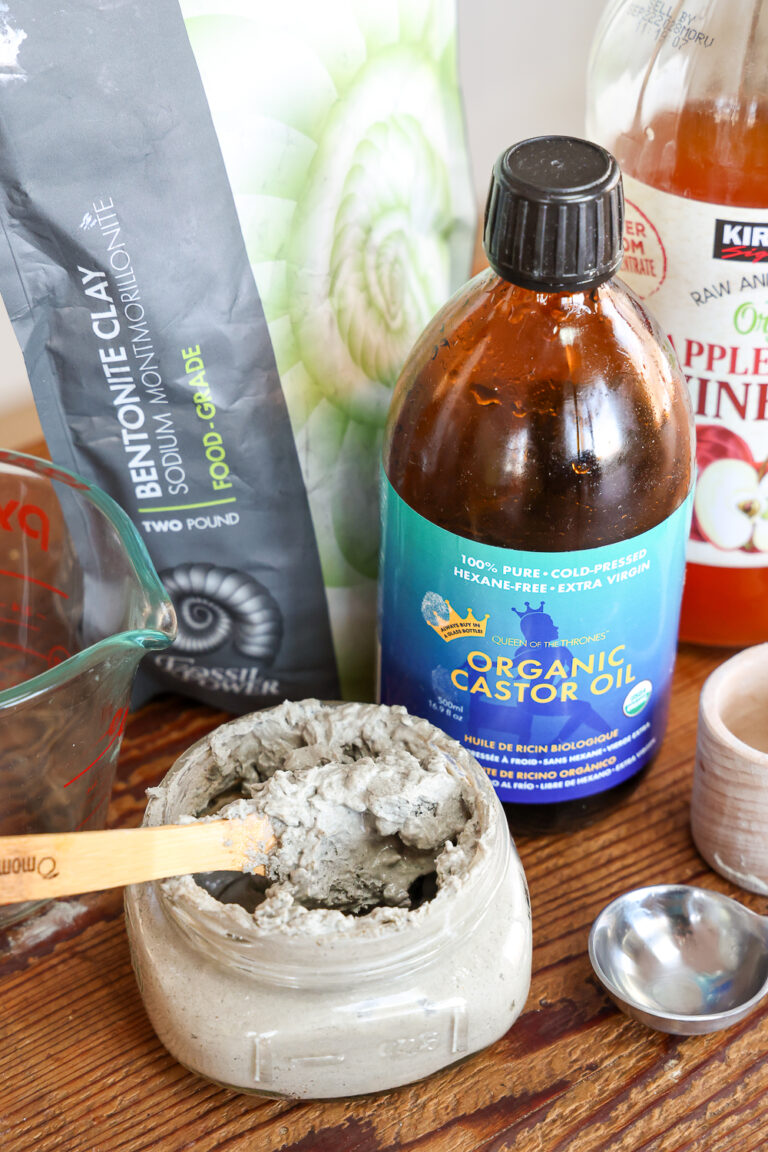
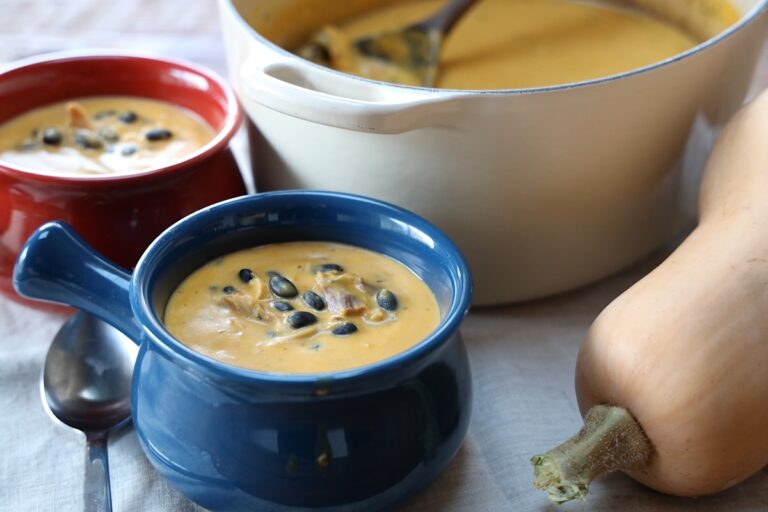
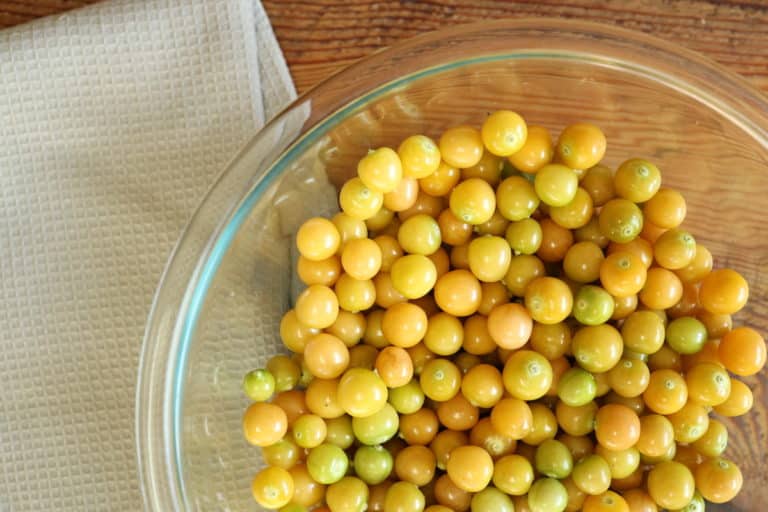
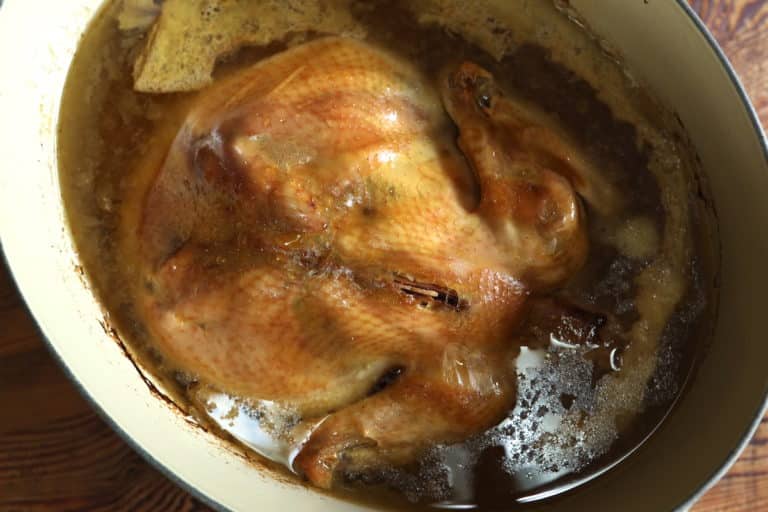
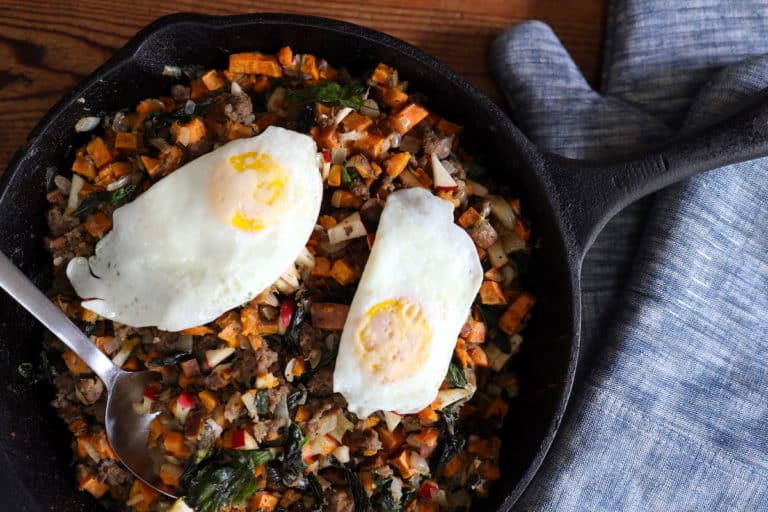
In the use of the power have you substituted it in recipes that ask for salt? I am on a strict sodium free diet and am looking for a substitute for the salt.
It’s has a very orangey flavor, so if that’s what you’re looking for but normally I wouldn’t think of it as a substitute for salt.
helpful nice quick video
please make other video how to use banana peel
THANK YOU
Thanks for the comment and suggestion!
Do you peel a ton and store the meat of the oranges also?
I would love to know if there are any tips or tricks for storing the rest of the orange.
Thank you.
The meat of the oranges get gobbled up pretty quickly around here. I just save the peels over the course of a few days/week.